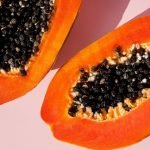
Micronutrients- What are they and how do they affect our body?
Micronutrients play an imperative role in our overall health. They work together with essential macronutrients and separately to support different parts of our body. Vitamins and minerals are referred to as micronutrients. They play a vital role in preventing the body from various diseases, well-being and healthy development. Apart from vitamin D, no other micronutrient is formed in our body, thus, it is important to include them in our diet. Hence it would not be wrong to say that the best things come in small packages!
Even though we need a trivial amount of micronutrients in our diet many have trouble getting enough. Here is a look at the four categories of micronutrients:
· Water-soluble vitamins: As the name suggests, they dissolve in water. Vitamin B & C are water-soluble vitamins as they are not stored in the body and the unused amount is flushed out. Thus, it gets replenished easily. They have some real work in our body such as producing energy, creating RBCs and preventing cell damage.
Sources: Fish, lean meat, citrus fruits, whole grains, eggs, leafy greens (such as spinach) and bell peppers.
· Fat-soluble vitamins: Vitamins that dissolve in fats and not water are fat-soluble vitamin. They are stored in the liver and fatty tissues for later use. Vitamins A, D, E, and K are some example of fat-soluble vitamins. They protect our vision, strengthen immunity, provide antioxidants that fight inflammation and facilitate blood clotting.
Sources: Leafy greens, sweet potatoes, milk almonds and soybeans.
| Micronutrients | Sources |
| Vitamin A | Orange foods such as carrots, pumpkin, butternut squash, and peaches. Also, dark leafy greens like kale and spinach. |
| B Vitamins | Whole grains such as quinoa, potatoes, lentils and beans. |
| Vitamin C | Fruits and veggies |
| Vitamin E | Sunflower seeds, peanut butter, almonds and spinach |
· Micro-minerals: Common minerals such as magnesium, sodium, calcium, potassium and phosphorus are micro-minerals. Many body functions such as strengthening bones and muscle, controlling blood pressure, etc depends on micro-minerals.
Sources: Milk products, black beans, lentils, bananas, leafy greens and fish (such as salmon).
· Trace minerals: Copper, zinc, iron, manganese and selenium are trace minerals. The body needs a slightly smaller quantity of trace minerals than micro-minerals. It helps in performing various functions in our body such as healing wounds, supporting nervous system functioning, providing oxygen to muscles and protecting cell damage.
Sources: Oysters, pecans, peanuts, spinach and cashews.
| Micronutrients | Sources |
| Calcium | Orange juice and plant milk, tofu, dark leafy greens, and salmon. |
| Magnesium | Spinach, broccoli, legumes, pumpkin seeds, and wheat bread. |
| Iron | Beans, dark leafy greens, whole grains, and nuts |
| Zinc | Legumes, and whole grains. |






